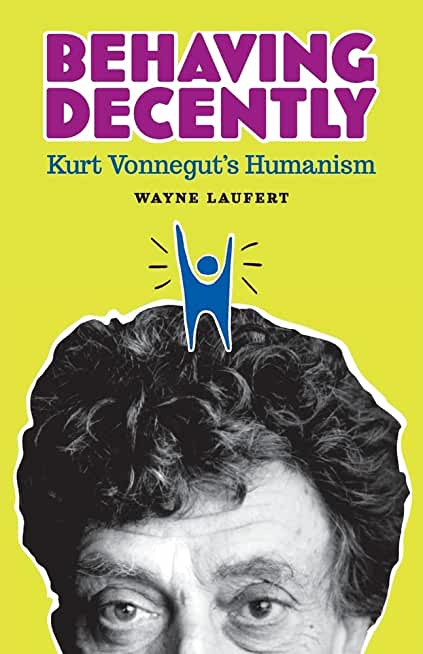
Topic by topic, Vonnegut's written and spoken views are explored, from his first novel, Player Piano (1952), through his antiwar masterpiece, Slaughterhouse-Five (1969), to the collections of his fiction and nonfiction that appear up till today, long after his death in 2007. His speeches, essays, interviews, and journalism, which support and expand upon the sentiments in his novels, receive proper consideration in this conversational overview of Vonnegut's life and career.
Religion, war, politics, science, art-these subjects and more are seen through Vonnegut's perspective and are placed within a larger humanistic outlook. His most famous creation, the old science fiction writer Kilgore Trout, gets his own chapter too.
Vonnegut called himself a "Christ-worshiping agnostic," a term that BEHAVING DECENTLY analyzes in the context of his upbringing as a freethinker, his wartime experience, his time in the corporate world, and other factors that formed his values.
Those values are perhaps best expressed by his character Eliot Rosewater, the damaged, super-rich philanthropist: "God damn it, you've got to be kind."
Vonnegut's real and imagined selves were incorporated into Kurt Vonnegut the author, the public speaker, the interview subject, and even the character that appears in some of his books. After all, he wrote, "I myself am a work of fiction."
That funny, wise, sometimes depressed persona was humanistic. BEHAVING DECENTLY shows the reader how Kurt Vonnegut reminded us to take small steps along hopeful paths to kindness and community and dignity and art-and farting around.







